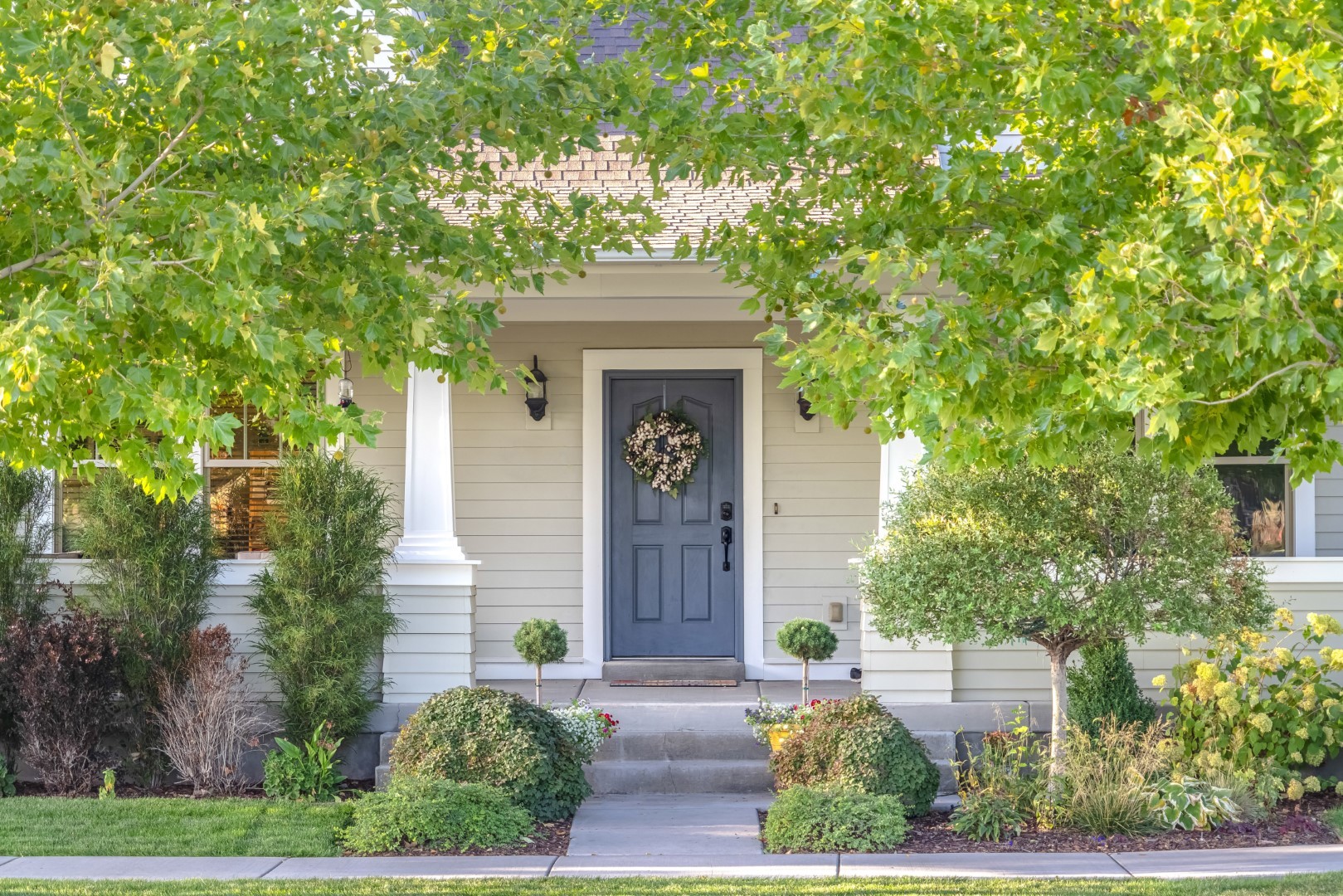9 TIPS TO GUIDE FOR YOUR HOME SEARCH
-
Decide your moving timeline. If you are renting. You should ask yourself, when is your lease up? Are you allowed to sublet? If you currently own a home. Are you desiring to keep your home as an investment or will you be selling it? The value of your home can determine the amount of equity you have in your home, contact a local real estate professional for assistance. Researching the local days on the market can assist in determining the average amount of time your home may be on the market. Lastly, are there any upcoming seasonal financial incentives such as grants or loan programs that you will need to consider? These factors will help you determine when you should move.
-
Get your finances in order. Contact a lender and get pre-approved for a mortgage. Your mortgage professional will review your credit report and be sure you have enough money to cover your down payment and closing costs while taking into consideration any equity you have in your current home. This will save you the heartache later of falling in love with a house you can’t afford.
-
Research before you look. Decide what features you most want to have in a home, what areas you prefer, and how much you’d be willing to spend each month on housing. Location is very important in real estate as you cannot change the location of your home after you buy it. Research the commute times to favorite destinations such as work, school, family, and friends.
-
Be realistic. It’s OK to be picky, but don’t be unrealistic with your expectations. There’s no such thing as a perfect home. Use your list of priorities as a guide to evaluating each property.
-
Don’t ask too many people for opinions. It will drive you crazy. Select one or two people to turn to if you feel you need a second opinion, but be ready to make the final decision on your own.
-
Think long-term. Are you looking for your first home with plans to move up in a few years, or do you hope to stay in this home for a longer period? This decision may dictate what type of home you’ll buy as well as the type of mortgage terms that will best suit you.
-
Always have a home inspection. A Home Inspection is a visual examination of a home from the roof to the foundation. An inspection can alert you to potential problems with a property and allow you to make an informed decision. Every aspect of a home can be inspected, however, sometimes other types of inspections may be desired or required depending on each buyer's particular scenario. Other types of inspections can also include radon, pest, mold, well/water, septic system, or mold.
-
Home Warranty. A buyer can purchase a home warranty for their new home. The cost of a home warranty can begin at $450 and go up from there depending on the level of coverage and the total term of the warranty. Warranty terms are typically 1 or 2 years in length.
-
Get help from a REALTOR®. Hire a real estate professional who specializes in buyer representation. A REALTOR® can assist in recommending a variety of different services such as a local lender, various home inspectors, title companies, insurance agents, closing companies, contractors, and more. Working with a REALTOR® also brings about the experience as most agents have assisted many buyers doing a similar transaction as yours.
TIPS FOR BUYING IN A TIGHT MARKET
Increase your chances of getting your dream home in a competitive housing market, and lower your chances of losing out to another buyer.
-
Get prequalified for a mortgage. You’ll be able to make a firm commitment to buy and your offer will be more desirable to the seller.
-
Stay in close contact with your real estate agent to find out about the newest listings. Be ready to see a house as soon as it goes on the market — if it’s a great home, it will go fast.
-
Don’t be afraid to scout out new listings yourself. Your real estate agent should be sending you properties but in a tight market, it is always good to have two people looking. Look at various websites with homes for sale, browse your local newspaper’s real estate section, and drive through the area to spot For Sale signs. If you see a home you like, write down the address, and the name of the listing brokerage and contact your agent promptly. Your real estate agent can get the additional information and is able to schedule a showing.
-
Be ready to make a decision. Spend a lot of time in advance deciding what you must have in a home so you won’t be unsure when you have the chance to make an offer.
-
Bid competitively. You may not want to start out offering the absolute highest price you can afford, but don’t go too low to get a deal. In a tight market, you’ll lose out.
-
Keep contingencies to a minimum. Restrictions such as needing to sell your home before you move or wanting to delay the closing until a certain date can make your offer unappealing. In a tight market, you’ll probably be able to sell your house rapidly. Or talk to your lender about getting a bridge loan to cover both mortgages for a short period.
-
Don’t get caught in a buying frenzy. Just because there’s competition doesn’t mean you should just buy it. And even though you want to make your offer attractive, don’t neglect inspections that help ensure that your house is sound.
5 TIPS FOR FINDING THE PERFECT AREA
The area in which you live has a big impact on your lifestyle. Follow these steps to find the perfect community to call home.
-
Is it close to your favorite spots? Make a list of the activities such as movies, health club, worship, and other things that you engage in frequently and stores you visit often, such as grocery, pharmacy, and hardware store. See how far you would have to travel from each area you’re considering to engage in your most common activities.
-
Check out the school district. This is especially important if you have children, but it also can affect resale value. The Department of Education in your town can probably provide information on test scores, class size, percentage of students who attend college, and special enrichment programs. If you have school-age children, visit schools in the areas you’re considering.
-
Find out if the area is safe. Ask your local law enforcement for area crime statistics. Consider not only the number of crimes but also the type of crimes committed and the trend of increasing or decreasing crime. Also, is crime centered in only one part of the area, such as near a retail area?
-
Determine if the area is economically stable. Check with your local city economic development office to see if income and property values in the area are stable or rising. What is the percentage of homes to apartments? Apartments don’t necessarily diminish value but do mean a more transient population. Do you see vacant businesses or homes that have been for sale for months?
-
Make personal observations. Once you’ve narrowed your focus to two or three areas, go there and walk around. Are homes tidy and well-maintained? Are streets quiet? How does it feel? Pick a warm day if you can and chat with people working or playing outside.
THE 5 MOST COMMON HOME BUYER MISTAKES
-
They don’t ask enough questions of their lender and end up missing out on the best deal. Asking why and what questions about your rate and terms of your loan will help enhance your understanding of the loan. Also, you may need to know more about your loan when you write an offer on a home. Believe it or not some buyers do not know what kind of loan they are pre-approved for when it comes to writing an offer.
-
They don’t act quickly enough to make a decision and someone else buys the house. This is a tough one as we all like taking time to make a decision, however, keep in mind if you like the home and the price and terms are fair someone else may be thinking the same as well.
-
They don’t find the right agent who’s willing to help them through the home-buying process. Finding an agent that is truly helpful and understands your needs is key. The agent's willingness to invest time in you and your home search will show the level of dedication the agent has.
-
They don’t do enough to make their offer look appealing to a seller. Communicating with the seller or seller’s agent can help to bridge the gap between most terms in your offer. After an understanding is developed about the current owner’s scenario in regard to items such as appliances, possession, and price can help to obtain a win-win for the buyer and owner. The negotiating process is more like a dance than it is a fight.
-
They don’t think about resale before they buy. Buying a home is one of the largest financial decisions you will make, and it does not have to be a bad decision. Buying the most expensive home may not guarantee you are buying the best home for resale down the road. A home that “needs a few things” is typically the better home to buy in the short term as when the “few things” are completed the home typically goes up in value. Taking your time to find a home that is a bit of a value compared to others can pay off in the long term as well.
6 REASONS TO OWN YOUR HOME
-
Tax breaks. The U.S. Tax Code lets you deduct the interest you pay on your mortgage or loan, loan discount points, your property taxes, and home office expenses if you operate a business from your home.
-
Appreciation. Real estate has long-term, stable growth in value. While year-to-year fluctuations are normal, median existing-home sale prices have increased over the last 10 years, according to the NATIONAL ASSOCIATION OF REALTORS®. In addition, the number of U.S. households is expected to continue to rise over the next decade, creating a continued high demand for housing.
-
Equity. Money paid for rent is money that you’ll never see again, but mortgage payments let you build equity ownership interest in your home. Building equity in your primary home is a ready-made savings plan. And when you sell your primary home, you can generally take a large gain without owing any federal income tax.
-
Predictability. Unlike rent, your fixed-mortgage payments don’t rise over the years so your housing costs may actually decline as you own the home longer. However, keep in mind that property taxes and insurance costs will increase.
-
Freedom. The home is yours. You can decorate any way you want and benefit from your investment for as long as you own the home.
-
Stability. Remaining in one area for several years gives you a chance to participate in community activities, lets you and your family establish lasting friendships, and offers your children the benefit of educational continuity.

